
Brittany is a peninsula, historical country and cultural area in the north-west of modern France, covering the western part of what was known as Armorica during the period of Roman occupation. It became an independent kingdom and then a duchy before being united with the Kingdom of France in 1532 as a province governed as a separate nation under the crown.
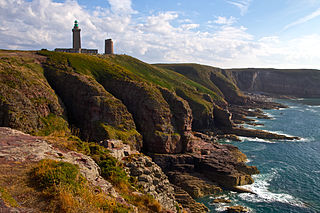
Brittany is the westernmost region of Metropolitan France. It covers about four fifths of the territory of the historic province of Brittany. It is one of two regions in Metropolitan France that do not contain any landlocked departments, the other being Corsica.

Loire-Atlantique is a department in Pays de la Loire on the west coast of France, named after the river Loire and the Atlantic Ocean. It had a population of 1,429,272 in 2019.
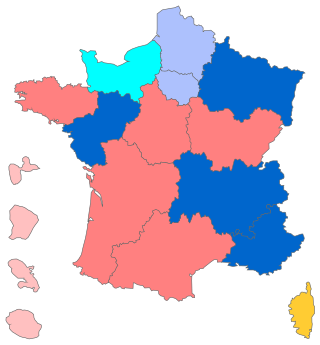
A regional council is the elected assembly of a region of France.

Couëron is a commune in the Loire-Atlantique department in western France. It is part of the historic French Brittany.
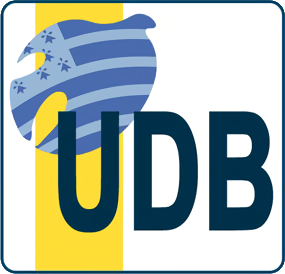
Breton Democratic Union is a Breton nationalist, autonomist, and regionalist political party in Brittany and Loire-Atlantique. The UDB advocates devolution for Brittany as well as the promotion of its regional languages and its associated culture.

Regional elections were held in France on 15 March 1998. At stake were the presidencies of each of France's 26 regions, which, though they don't have legislative autonomy, manage sizeable budgets.

Jacques Auxiette was a French politician, and was the Regional Council President for the Pays de la Loire region in France. Auxiette was president between 2004 and 2015, and was re-elected to the office in the March 2010 council elections. He was a member of the Socialist Party.

Marc Le Fur is a French politician who has represented the 3rd constituency of the Côtes-d'Armor department in the National Assembly from 2002 to 2024. A member of The Republicans (LR), he previously held the seat from 1993 to 1997.

The politics of Alsace, France, takes place in a framework of a presidential representative democracy, whereby the President of the Regional Council is the head of government, and of a pluriform multi-party system. Legislative power is vested in the regional council.

The politics of Rhône-Alpes, France takes place in a framework of a presidential representative democracy, whereby the President of Regional Council is the head of government, and of a pluriform multi-party system. Legislative power is vested in the regional council.

The politics of Aquitaine, France takes place in a framework of a presidential representative democracy, whereby the President of Regional Council is the head of government, and of a pluriform multi-party system. Legislative power is vested in the regional council.

The Politics of Poitou-Charentes, France takes place in a framework of a presidential representative democracy, whereby the President of Regional Council is the head of government, and of a pluriform multi-party system. Legislative power is vested in the regional council.
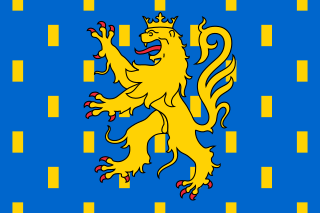
The politics of Franche-Comté, France takes place in a framework of a presidential representative democracy, whereby the President of Regional Council is the head of government, and of a pluriform multi-party system. Legislative power is vested in the regional council.
The Ecologists – Europe Ecology The Greens, commonly known as The Ecologists and formerly as Europe Ecology The Greens until 2023, is a centre-left to left-wing green political party in France. The party is a member of the European Green Party. It was formed on 13 November 2010 from the merger of The Greens and Europe Ecology.

Regional elections were held in France on 6 and 13 December 2015. At stake were the regional councils in metropolitan and overseas France including the Corsican Assembly and inaugural seats in the Assembly of French Guiana and Assembly of Martinique, all for a six-year term. The Departmental Council of Mayotte, which also exercises the powers of a region, was the only region not participating in this election, having already been renewed on 2 April 2015. There were 18 regional presidencies at stake, with 13 in mainland France and Corsica, as well as 5 overseas. Though they do not have legislative autonomy, these territorial collectivities manage sizable budgets. Moreover, regional elections are often taken as a mid-term opinion poll.

Normandy is the northwesternmost of the eighteen regions of France, roughly coextensive with the historical Duchy of Normandy.
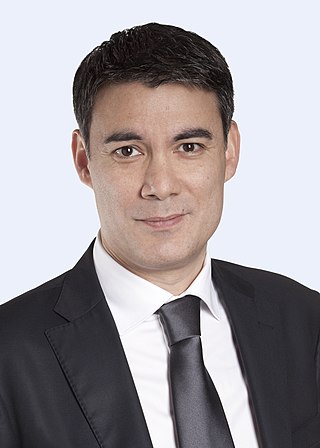
Regional elections were held in France on 20 June and 27 June 2021. At stake were the regional councils in metropolitan and overseas France including the Corsican Assembly, Assembly of French Guiana and Assembly of Martinique, all for a six-year term. The Departmental Council of Mayotte, which also exercises the powers of a region, also participated in this election, because the departmental elections were held at the same time. Eighteen regional presidencies were at stake, with thirteen in mainland France and Corsica, as well as five overseas. Though they do not have legislative autonomy, these territorial collectivities manage sizable budgets. Moreover, regional elections are often perceived as a mid-term opinion poll. Due to the COVID-19 pandemic, the regional and departmental elections were postponed, first to 13 and 20 June 2021 and then to 20 and 27 June 2021.

The politics of Île-de-France, France takes place in a framework of a presidential representative democracy, whereby the President of Regional Council is the head of government, and of a pluriform multi-party system. Legislative power is vested in the regional council.

The Reunification of Brittany or Breton Reunification is a political movement to reunite the Loire-Atlantique department with the administrative region of Brittany, to form the entire cultural and historical region of Brittany. This "reunification" is considered a prerequisite for further Breton autonomy.



















